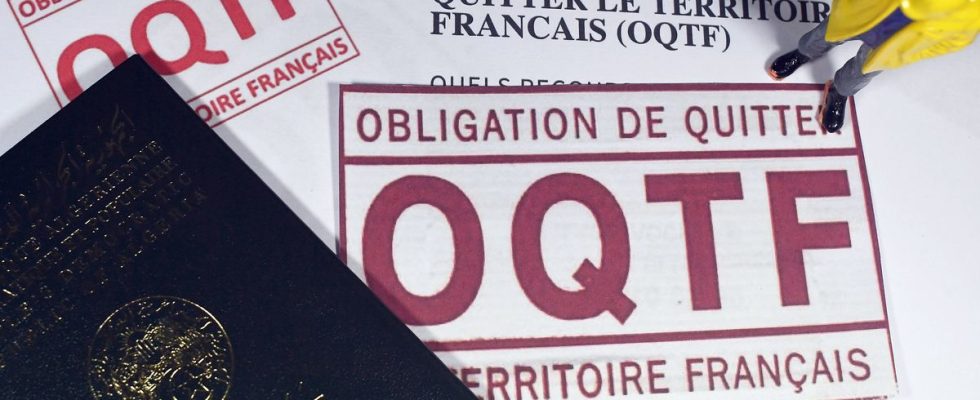Bad copy for the Ministry of the Interior. While the subject is still hot, a few weeks after the vote on the very controversial Immigration law, the Court of Auditors is doing the accounts on the expulsions, and they are not good. In a detailed report on the “policy to combat irregular immigration”, the magistrates of rue Cambon estimated that the administration would benefit from recalibrating a currently “ineffective” strategy, which is based above all on the massive issuance of ‘OQTF (obligation to leave French territory).
In 2022, 153,042 removal orders were issued, including 134,280 OQTF. The same year, France expelled 11,406 people, including 7,214 “forced removals”. “This disconnect between the number of removal measures pronounced and their effective execution demonstrates the difficulties of the State in enforcing, including under duress, its particularly numerous decisions,” observes the Court of Auditors, emphasizing that “only one small minority – around 10% – of OQTFs are executed.”
A “very low” proportion, commented the first President of the Court, Pierre Moscovici, at a press conference.
Priority on offenders
Since the summer of 2022, the authorities have focused their efforts on profiles presenting a threat to public order or having been criminally convicted, a “relevant prioritization”, believe the authors of the report.
According to data compiled by the Court of Auditors, this shift corresponds to a major trend over the years 2019-2022: when an eviction procedure is initiated on the grounds of a threat to public order, it is carried out in 23 % of cases, 45% when it is due to a criminal conviction. Conversely, an OQTF issued to someone rejected from asylum or after a refusal of a residence permit only results in expulsion in 2% of cases.
Result: mid-December 2022, 91% of people locked up in administrative detention centers (CRA) were there due to disturbances to public order or for radicalization, compared to 44% in mid-August 2022. Thursday, the Ministry of Interior announced a 30% increase over one year in expulsions of “delinquent foreigners”, with 4,686 people expelled in 2023 compared to 3,615 in 2022.
A lack of organization
Thanks to its law, the government wants to reduce from twelve to four the number of appeals to contest expulsion procedures and lift several protections granted to certain categories of people, for example foreigners who arrived in France before the age of 13. But several other “obstacles explain this low rate” of expulsions, lists the Court of Auditors.
First, many countries of origin are reluctant to issue consular passes, diplomatic keys to expulsion. In this regard, the authors recommend “centralizing the consular pass application procedure, with some exceptions, to improve relations with consulates and the success rate of applications”.
Then, the administration struggles to demonstrate the identity of the people it seeks to expel, in “20 to 30%” of procedures. Finally, the very large number of procedures initiated “clog up the prefectures” which “sometimes issue OQTFs to people integrated into society” or “who cannot be removed”, for example nationals of countries at war. “The State can organize itself better”, summarizes the Court, but the objective set by the President of the Republic, Emmanuel Macron, of executing 100% of the OQTF seems “fantasmatic”, according to Pierre Moscovici.

